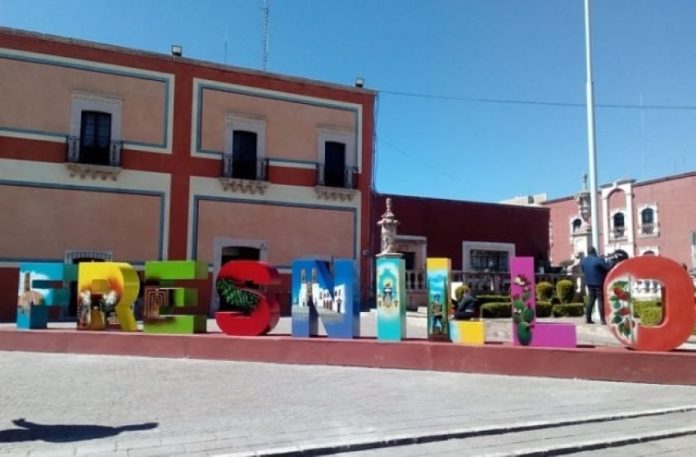High levels of violence continue to plague Mexico but citizens’ perceptions of insecurity are at their lowest level in more than seven years.
Nevertheless, two-thirds of Mexican adults still say they feel unsafe in the city in which they live, according to a new security survey.
The latest National Survey on Urban Public Security, conducted by the national statistics agency Inegi in March, found that 66.4% of adults believe that where they live is unsafe, the lowest percentage since Inegi began conducting its quarterly survey in late 2013, even though homicides have increased during the seven-year period.
The figure is 1.7% lower than that detected by the previous survey, conducted last December; 7% lower compared to a year ago and 10.4% below the worst percentage of 76.8%, which was recorded in the first quarter of 2018.
Fresnillo, Zacatecas, is still seen as the least safe city in the country.
The most recent survey found that 71% of women and 60.9% of men believe their city is unsafe. The former figure represents an annual decline of 7.6% while the latter is a 6.3% drop.
The perception of insecurity was highest in Fresnillo, where 94.2% of respondents said they felt unsafe. The city was identified in Inegi’s previous survey by respondents as the least safe in Mexico.
Mayor Saúl Monreal Ávila said earlier this year that Fresnillo had been “overtaken” by organized crime activity.
Ecatepec, a densely populated México state municipality that borders Mexico City and is notorious for femicides and crime generally, ranked as the second most dangerous city. Almost nine in 10 Ecatepec residents who were surveyed — 89.9% — said the municipality is unsafe.
Cuernavaca, Morelos; Gustavo A. Madero, Mexico City; Uruapan, Michoacán; and Guadalajara, Jalisco ranked third to sixth as the most unsafe cities among the 85 whose residents were surveyed. Between 86.1% and 87.8% of residents of those cities said they felt unsafe.
Conversely, San Pedro Garza García, an affluent municipality in the metropolitan area of Monterrey, Nuevo León, ranked as the safest city. Only 8.2% of survey respondents said they felt unsafe living there, a reduction of 3.5% compared to the previous survey.
Tampico, a Tamaulipas port city that borders the state of Veracruz, ranked second with 25.2% of residents saying it was unsafe, a decline of 11.8%.
San Nicolás de los Garza, Nuevo León; Los Cabos, Baja California Sur; Piedras Negras, Coahuila; and Mérida, Yucatán, ranked as the third to sixth safest cities, respectively. Between 26.2% and 30.3% of residents of those cities said they felt unsafe.
The urban security survey also found that the most common place where people feel unsafe is at ATMs in the street. Almost eight in 10 respondents — 78.4% — said they feel unsafe when withdrawing cash.
Public transit (71.2%), banks (63.4%), the streets (59.2%) and markets (51.6%) ranked in second to fifth place.
Of those polled, 52.7% said that they had witnessed a robbery or assault in the first quarter of 2021, while 38.8% said that they frequently hear gunshots. Almost four in 10 respondents said that they have witnessed drugs being sold or consumed near their homes.
Almost nine in 10 respondents said that the navy is the most effective and trustworthy security force in Mexico. The army ranked as the second most effective and trustworthy security force (84.9% of respondents said it is effective and 85.9% said it is trustworthy) followed by the National Guard (75.1% and 78.8%), state police (53.8% and 55.1%) and municipal police (44.6% and 48.1%).
Almost three-quarters of respondents cited potholes as a problem in the city where they live, making baches — as they are called in Spanish — the most commonly mentioned problem. Insufficient public lighting was the second most commonly cited problem, followed by crime, water supply problems, saturated hospitals and blocked drains.
Mexico News Daily
